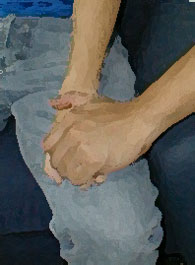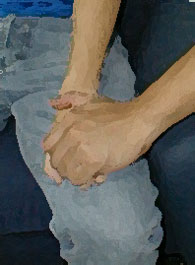As in all other areas of legal and social responsibility, the younger person is not being regarded as a free and independent agent with a will.
- Gilbert Herdt, from an interview in Dares to Speak by Joseph Geraci (ed.)

- Antler, What Every Boy Knows, 1983
It's difficult - maybe closer to dangerous - to suggest any hint of a connection between the "homosexual" and "boy-love". In the current climate (will the weather ever change?), it doesn't seem likely that such a statement could help improve the very fragile tolerance of the non-heterosexual identity we wish to continue to enjoy. Our fears blind us and bind us.
The visual texts on offer in our modern gay magazines actively push paedophilic possibilities into a state of unquestioned invisibility. Compare a modern day publication with one from thirty years ago, and you'll notice a vast, vast difference. It's not that images of young boys no longer appear on the pages. They still do, and in smothering overload. But where once they were exposed in loving embraces alongside us, now their nubile bodies are portrayed as anything but sexual in our eyes.
When we stretch their tight, tender flesh across our posters and centrefolds, we share no concern for the fight for liberation for all. Under the same system of oppression that we claim represses the "homosexual" at the hands of the dominant "heterosexual", we have turned "youth" into our own political tool. Our desire to be seen as "normal" and to gain our own full legal acceptance has demanded the removal of any hint of our attraction to sexual innocence. Young boys are now our means of proving that we can be happy and "gay" at the all important age of 16. They are the propaganda material we use to promote the acceptable debate for our equality.
This shifting of affection has been governed by a vigorous attempt to defy and defile the validity of intergenerational sexual affairs. Academics have suggested that the economic structure of our culture and the power dynamics created therein deem any paedophilic relationship to be fundamentally unfair. Do we seek, therefore, to place a similar ban on all such affairs - on women who suffer under the economic power of men; blacks under whites; the poor under the rich? Educationalists argue that sexual interaction at too early an age cannot be performed with any real and honest consent, and yet we force our boys and girls to spend six hours a day locked in study. Is the reality of their bodies a much harder concept for young people to comprehend than the constructed mathematical equations they must meticulously memorise? Our religions and our media teach us from birth - and we consequently teach - that sex is damaging and harmful; it's a sin, a violation, an invasion of our innocence. It's little wonder that we allow ourselves to ever engage in something so "vile" at all.
The homosexual's participation in this construction of the meaning of paedophilia signals a grave denial of history. Like it or not, man-boy love is a part of our homosexual culture. It is also very much a part of our heterosexual culture. It is a part of our entire intertwined sexual history. It is not a good thing; it is not a bad thing. The interpretations that we now assume to be so naturally and morally true are only created by the discourse we allow ourselves to engage in - or

We participate in the oppression because we too gain from a system that maintains power for the adult over the child. In our world of consumer "gayness", we happily spend millions on trying to maintain the softness of our skin and to remove the bags from under our aging eyes. Buy this cream, look like a child! Our most favoured pop stars are applauded for their youth, and then we toss them aside when their poor attempts at music can no longer be excused by young age. We promote tight clothes with navels and waistlines fully on show. We advertise party after party all night long, and show ourselves to be filled up with youthful energy (or something). We conceal our obsession with youth by striving to stay young, wanted, and desired. We recognise these to be the most important signs of success in our glossy fake lives. We admire them, we chase after them, and we want to hold on to them all for self. What would become of us if we had to relinquish our grip on this power?
There is no truth in the moralist's argument that all homosexual men have a sexual attraction to young boys. There is also no truth in our own censored suggestion that none do. But we do know a history of enforced silence when our oppressors stole from our successes. We should know better.
